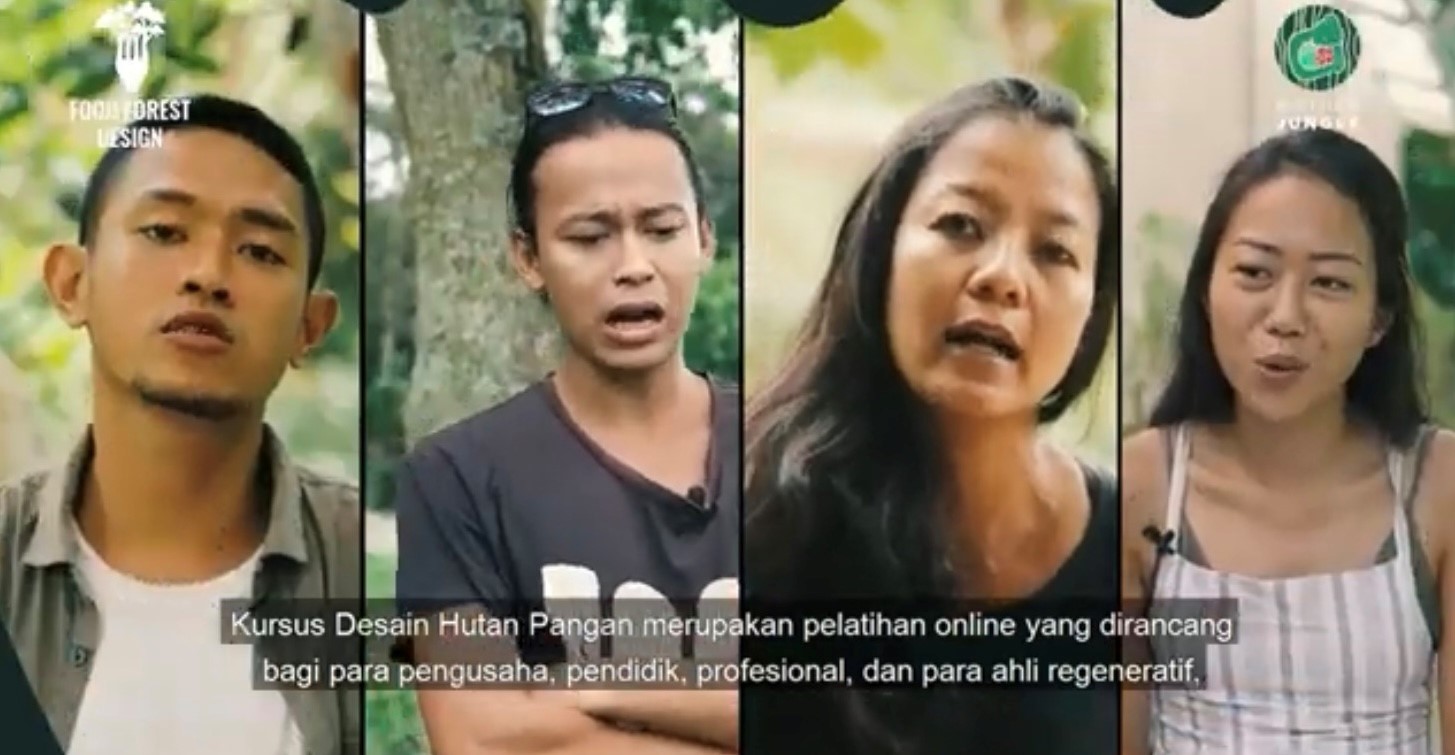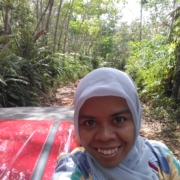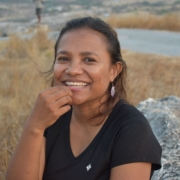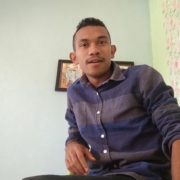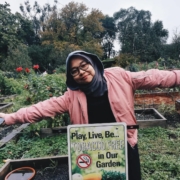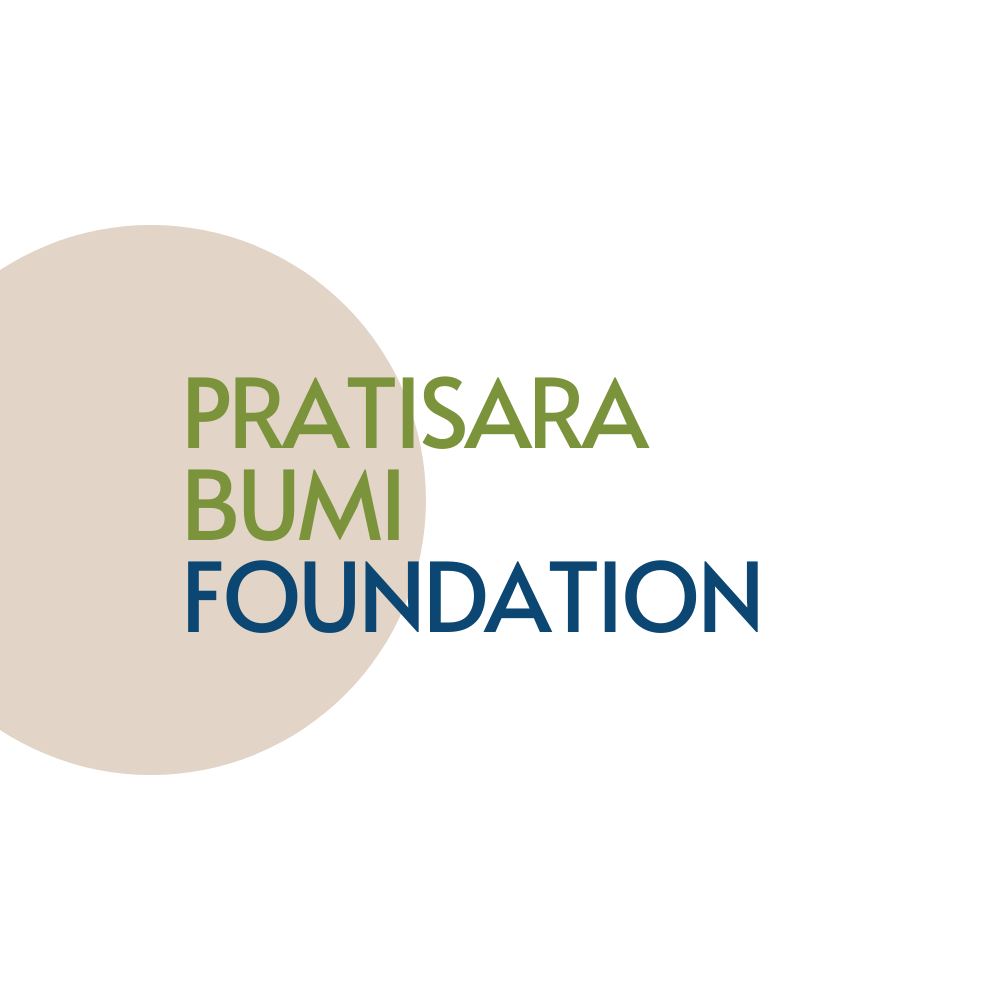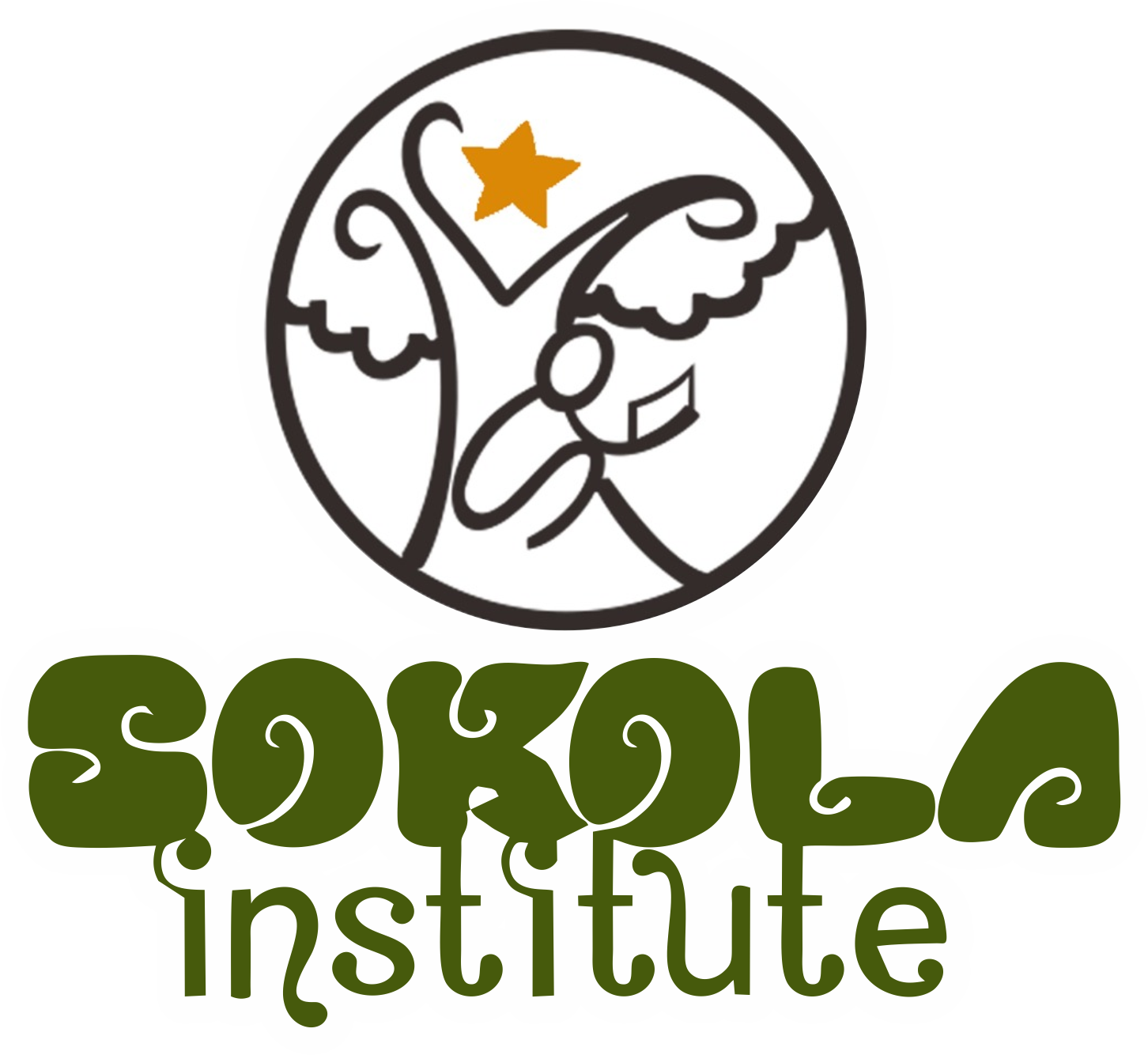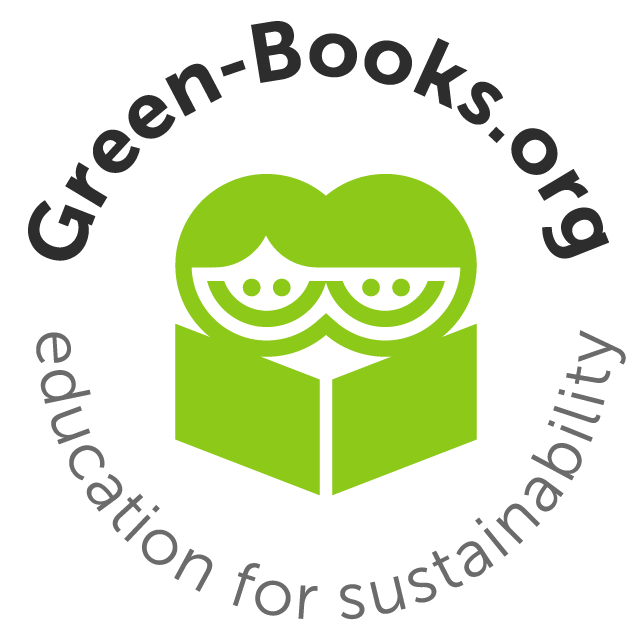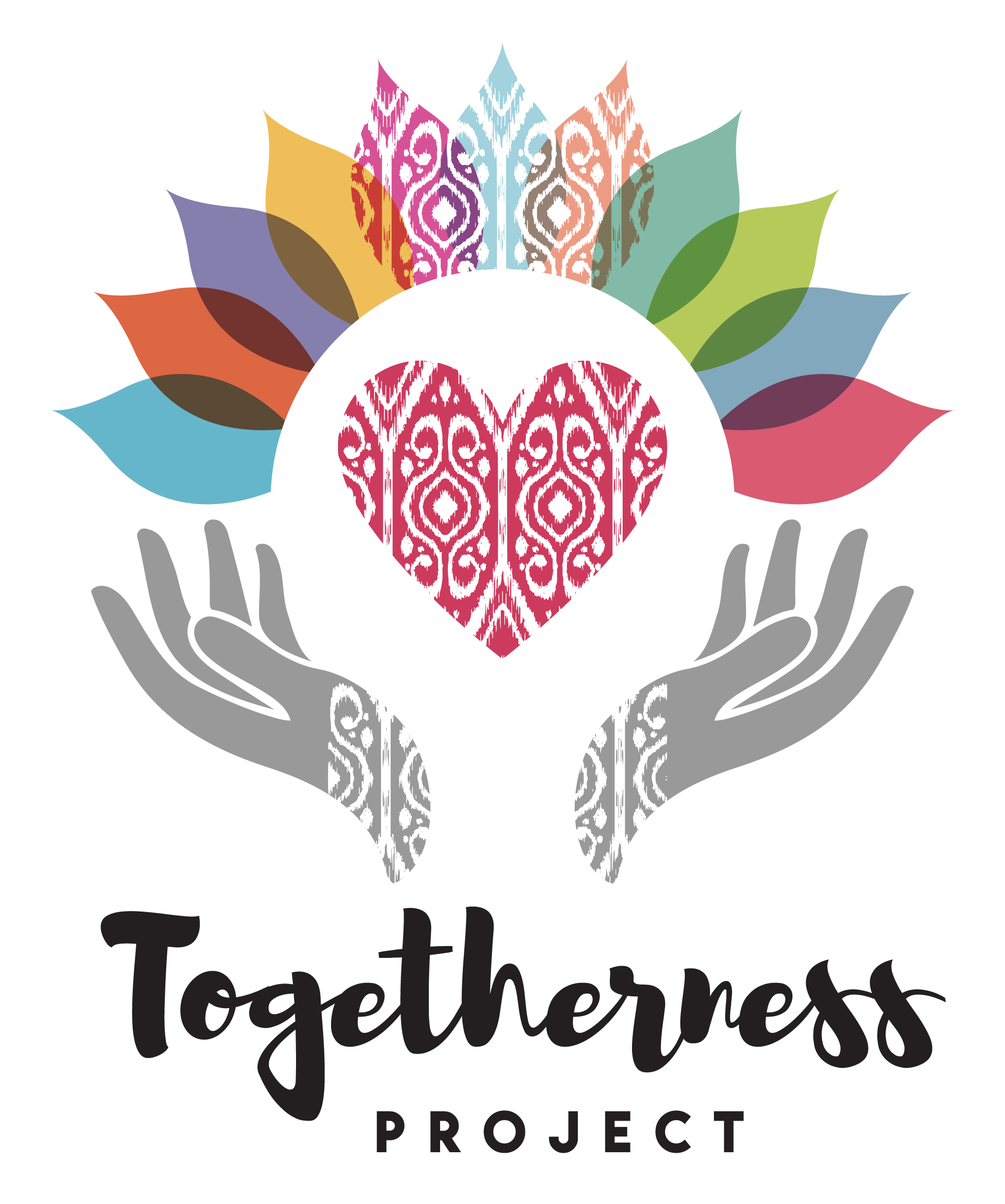Food Forest Design
5 May-22 July 2022
LOCATION
Online (Language – Bahasa Indonesia)
PROGRAM FEE
IDR 5,500,000
FOCUS
Permaculture Food Forest, Sustainable Food Growing System, and Responsible Consumption and Production
CERTIFICATION
Officially Dual Gaia Education / UNESCO certifications for Food Forest Design
APPLICATION DEADLINE
25th of April 2022
SIGN UP FORM
APPLICATIONS CLOSED
Food Forest Design
The ‘Food Forest Design’ course is specifically designed to support Indonesian educators and entrepreneurs to bring back the knowledge about food forests to the wider community and next generation. Permaculture Food Forests are intentional cultivated forest gardens that contain native and cultivated plants, which provide yields for humans and ecological functions. Essential goal of the course is to train participants how to develop a low-maintenance forest that’s completely edible. The ‘Food Forests Design’ course is developed to significantly improve eating patterns in children and their families and bring back the knowledge of how to live with and from nature.
Our trainings are all integrating SDG’s. This course will specifically focus on:
– SDG 3, Good Health and Well-Being
– SDG 12, Responsible Consumption and Production
What Are The Benefits of a Food Forest?
Food Forests are sustainable food growing systems. Instead of traditional raised-beds or boxes, the Food Forests abound with perennial, edible trees, bushes, herbs, vines, and ground covers. An abundance of rare, tropical, gourmet crops can be found year-round nestled among winding paths. A food forest is a sustainable and natural way to produce healthy and organic food. By learning how to tend your specific soil and develop plant and tree communities you’ll be able to improve your yield and provide nourishing and healthy food for you, your (school) community and the families in the community.
Learning Outcomes
PHASE 1: Learning Outcomes to develop knowledge and understanding of Food Forest Design
In the first part of the course we’ll focus on the Permaculture Food Forest concept and how it can be applied to create an intentional food forest in your bioregion that offers yields throughout the year. Videos, articles and exercises will help to discover plants for the food forest and learn how to build relationships between them to increase productivity. Goals in Phase 1 are:
- Explain the Permaculture concept and give tools to actively engage with the ethics and principles
- Understand how the concept of Permaculture can be applied to educational environments
- Explain the food forest concept and how it can be useful in your community.
- Assess a site for the planting of a food forest.
- Describe climatic considerations, historical plants, and cultivation strategies for your area.
- Develop Goals and outcomes through a Theory of Change to map the effect of your project on the short and long term.
PHASE 2: Learning Outcomes Practical Phase to develop Project-Based skills & Food Forest Project Design
The second part of the course culminates in a final design proposal for a permaculture food forest at a local site. You will develop an integrated and experiential learning project to practice your skills. The assignments in this part of the course will guide you step by step through the design of a food forest on the site of your choice. Worksheets and a template for your design will help to research the necessary information for a successful food forest in your region.
- Learn how immersive, project based learning experiences engage students/community members in solving real-world problems in contexts that are personally relevant to them.
- Learn how to relate experiential education as a key approach to student-centred learning for a sustainable future.
- Develop creative skills needed for critical thinking, problem solving and decision making.
- See examples of ways that learning outside the classroom can be used to facilitate Education for Sustainability.
- Understand various plant relationships that can contribute to high diversity and resilience in your food forest.
- Make strategic decisions about which species to include in your design to meet your needs and steward your local environment.
PHASE 1
- Week 1 & 2: Understanding Environmental Issues and Challenges
- Week 3 & 4: Native Food Systems
- Week 5 & 6: Permaculture Food Forest
PHASE 2
- Week 7 & 8: Produce No Waste & Build Up Soil
- Week 9 & 10: Animals & Pest Control
- Week 11: Final Presentations Food Forest Design & Video Project
What’s Included

CERTIFICATION
Dual Gaia Education/UNESCO certification: Participants will receive an official Mother Jungle Food Forest Design certificate in cooperation with Gaia Education and UNESCO Global Action Programme on Education for Sustainable Development.
In order to receive a CERTIFICATE OF COMPLETION: requirement to be present in webinars, make the assignments and be active in at least 90% of the course)
Designed by Mother Jungle in cooperation with our partner organizations, this expert-led course features the following learning formats:
| MENTORSHIP BY EXPERTS FROM THE FIELD | |
| MULTIMEDIA RESOURCES | |
| VIDEO LECTURES AND GUESTSPEAKERS | |
| PRACTICAL EXERCISES | |
| READINGS AND RESOURCES |
Testimonial
Partners
Apply Now
Application Period: 24 March – 25 April 2020.
The ‘Food Forest Design’ Program will be held virtually on 5 May – 22 July 2022. Announcement of the start of the program will be made available between 2-5 MAY 2022.
If you have any questions, please email us at [email protected]

